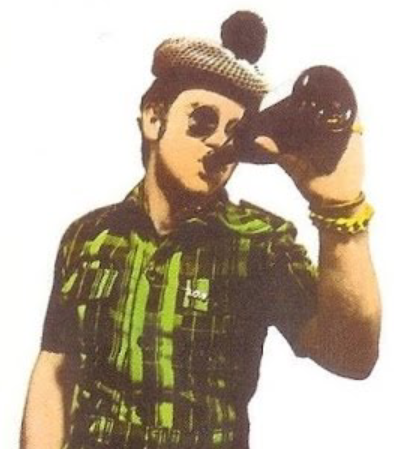I’ve been curious how many working researchers we’ve got in this community, and what you all do!
If you’re working in science (physical or social), engineering, etc in a research capacity, give a shout in the comments and let us know what you work on! Same goes for students and amateur scientists at any level. (And by amateur I mean those of you who are working on your own experiments but just not being paid for it / not working on a degree; I’m upset that “amateur” has a negative connotation, it shouldn’t.)
I’m currently a PhD candidate, working on transmission electron microscopy and electronic materials (mainly ferroelectrics). In the past I’ve been involved in research / product development in a few different industries, including medical devices, aerogels, and materials for RF devices.
It’s science-y enough but I’m definitely not considered a scientist so much as a technologist. I work as a MRI (Magnetic Resonance Imaging) Technologist. Previously a X-Ray Technologist.
My machine does all the science for me but it’s a pretty neat concept. Using magnetic gradients and RF pulses at hydrogen protons to acquire accurate digital imaging.
Happy to have you! The science behind MRI is fascinating, and the machines themselves are really cool. Have you ever seen a magnet quench? I don’t think they’re really supposed to happen during normal operation, but some of the videos I’ve seen have been rather dramatic.
It is pretty crazy people were able to figure that all out and we are able obtain crazy detailed pictures without radiation.
No I haven’t seen it! Hoping to see a controlled quench someday but also hoping to avoid needing to use it in any emergency situations; it’ll have to be a damn near life/death situation to hit that button. Very costly decision. I guess there’s also a dwindling supply of helium in the world so that could get interesting as time goes on.
Yeah, helium being a finite resource was something that really surprised me when I first learned about it! Better to keep it inside the MRI as much as possible for sure
helium recovery and recycling has come a long way, and the costs of helium are now justifying the extra expense of the hardware, so I think that problem should abate somewhat in the coming years.
PhD in Geology. Now am a research scientist working in more general materials science/chemistry/gas adsorption. My thesis was on lunar petrology where I studied Apollo 16 samples. My current research is much less exciting. Haven’t touched a rock in ages and my geologist heart hurts from it haha
Dang we gotta get you some cool rocks!
(I’ve always kinda wanted to thinly section some rocks with nice big grains and put them in the TEM; so many natural minerals have really interesting crystal structures!)
I’m a PhD candidate too - my contract is finished now, but I am still writing my thesis. So I am currently at the awkward intersection of finishing a thesis and looking for a job.
My PhD focus is in applying time-resolved spectroscopic techniques to study the excited state dynamics of molecules. Basically, these are experiments in which a pulsed laser is used to excite the sample and a second probe light is used to measure a change in the absorption in response to the light. By measuring these changes in the absorption as a function of time, and applying quantum chemical techniques to calculate the spectra of potential intermediates, one can sort of recreate a molecular movie of what the molecule is doing after it absorbs light with a time resolution of femto to picoseconds. The materials that I study are organic dyes that are useful for microscopy, as well as molecules that respond to EUV light for applications in photonanolithography (for making the very small transistors in computer chips).
I am also an “amateur” scientist when it comes to biology, as many of my hobbies are nature-based and it’s not like I can turn off the science bug when it comes to hobbies.
Well that’s fascinating! The technique sounds a little bit like a cross between Raman and EXAFS/XANES? (Probably just because those are two techniques I happen to be familiar with though.)
I’m a software developer who works on Backend/APIs/Cloud/AI. Currently browsing Lemmy instead of actually doing work in my home office…
Currently browsing Lemmy instead of actually doing work in my home office…
Some days just turn out that way lol
I’m an associate professor in computer science, currently working on stochastic algorithms (like genetic algorithms).
Until now, I’ve been working on quite abstract optimization problems, but I’d like to switch to more useful applications, like social inequalities or climate change.
I get that. Working on a more abstract problem should, in theory, help solve more practical problems down the line, but sometimes it just feels less satisfying that working on something where you can see the real world application and (hopefully) results. I’m definitely looking to do something practical with my experience once I’m finished with my PhD.
I’m a staff bioinformatics scientist at an academic institution, got my PhD a few years ago and wasn’t interested in a postdoc. I get to work on a huge range of research questions and lots of different technologies. It’s great!
Oh that’s rad! What’s it like being a staff scientist at an academic institution? I’m still trying to figure out exactly what I want to do after I graduate – I know I’m not interested in pursuing the tenure track, but I haven’t decided if I should go back into industry / look into staff science positions national labs / etc.
It has its pros and cons — I work on lots of projects and help with parts of grant writing, but I’m not the one guiding the big research goal/question (I appreciate that the questions are interesting but don’t care that much about the question usually). Because I work on so many projects I usually only have <1 full day a week to work on each one, so progress can be slow and managing expectations can be challenging. I am paid more than a postdoc but less than I would in industry. It is expected that I will mentor undergraduate students and teach workshops. These things might make a big difference re: how much you enjoy the job. Folks in this type of position are sometimes called research software engineers: https://society-rse.org/
Huh, that’s really interesting. I do like teaching, so that part sounds appealing (as does getting paid more than a postdoc!), so maybe it’s a route I’ll consider going forward. Thanks for your insight!
I’m a research professor of neurology, and my research focuses on developing novel cognitive assessments for measuring early-stage Alzheimer’s disease and other types of dementia.
That’s a field where it seems (to an outsider) like a lot has been happening recently! Glad to have you here!
You’d be correct! The new anti-amyloid drugs are very exciting, and it makes my work on preclinical Alzheimer’s even more fulfilling as it can have a real impact on getting people tested and treated as early as possible.
I’m a professor of chemistry, I mainly do organometallic research but we’ve been branching out into other areas.
Very cool! My only experience with organometallics is with CVD and related technologies (like we’ve got one machine we use called a FIB – focused ion beam – that uses an organometallic as a carrier for platinum deposited as part of the process). Mainly I think of them as “probably toxic, probably pyrophoric, treat with extreme caution” sorts of chemicals.
@sensibilidades @realChem MOFs are hot
I’m a postdoc, working on laser-plasma/ interactions and electron accelerators. My PhD work was on ultrafast electron diffraction.
trained physicist with 2D materials background, turned all-round engineer with an ultrafast spectroscopy startup.
I’m working on my Astrophysics PhD. I study “galactic cannibalism” aka how galaxies grow and change by eating smaller galaxies. My big focus is on teaching and outreach though rather than research.
Cool! Is this the kind of thing that’s going to happen between Andromeda and the Milky-way, or is that fundamentally different because they’re more similar in size?
I work in mine closure. I create plans to re-integrate them back into the surrounding landscape, and provide valuable end land uses (not just those centred around ecosystem re-establishment).
Graduate student in ecology, just finishing up.
what are you hoping to do afterward? I’ve always found ecology interesting
Congrats on (being close to) making it through!
I’m a Mechanical Engineer who designs automation equipment. Basically lots of 3-6 axis robots, multi-axis gantries, various conveyance mechanisms, and other specialized automation equipment integration. Its fun because it is a job all about things moving from point A to point B.
That sounds like a pretty fun job, yeah! A bit like a real-world puzzle game, maybe? But presumably with more freedom to do what needs to be done to get things from A to B efficiently.
100%.
It’s kind of like designing Lego but with weldments, extruded aluminum, cylinders, servos, and any other number of components.
Social sciences, expert/consultant position. We have our own in-house research, and collaborating with them is always good fun
Cool! So like a company that consults out on social sciences issues for other companies, and you collaborate with your in-house research team to try to answer questions your customers have?
Yeah, kinda. It’s a non-profit providing research and offering consultation on the well-being of the population. We also have a service side that provides sexual education, family planning help and relationship counseling. The data from the service side is used in conjuction with wider population data to have a peek at societal trends etc.
Sounds like a very valuable organization! I’m glad to hear you’re having some fun working there, too.









